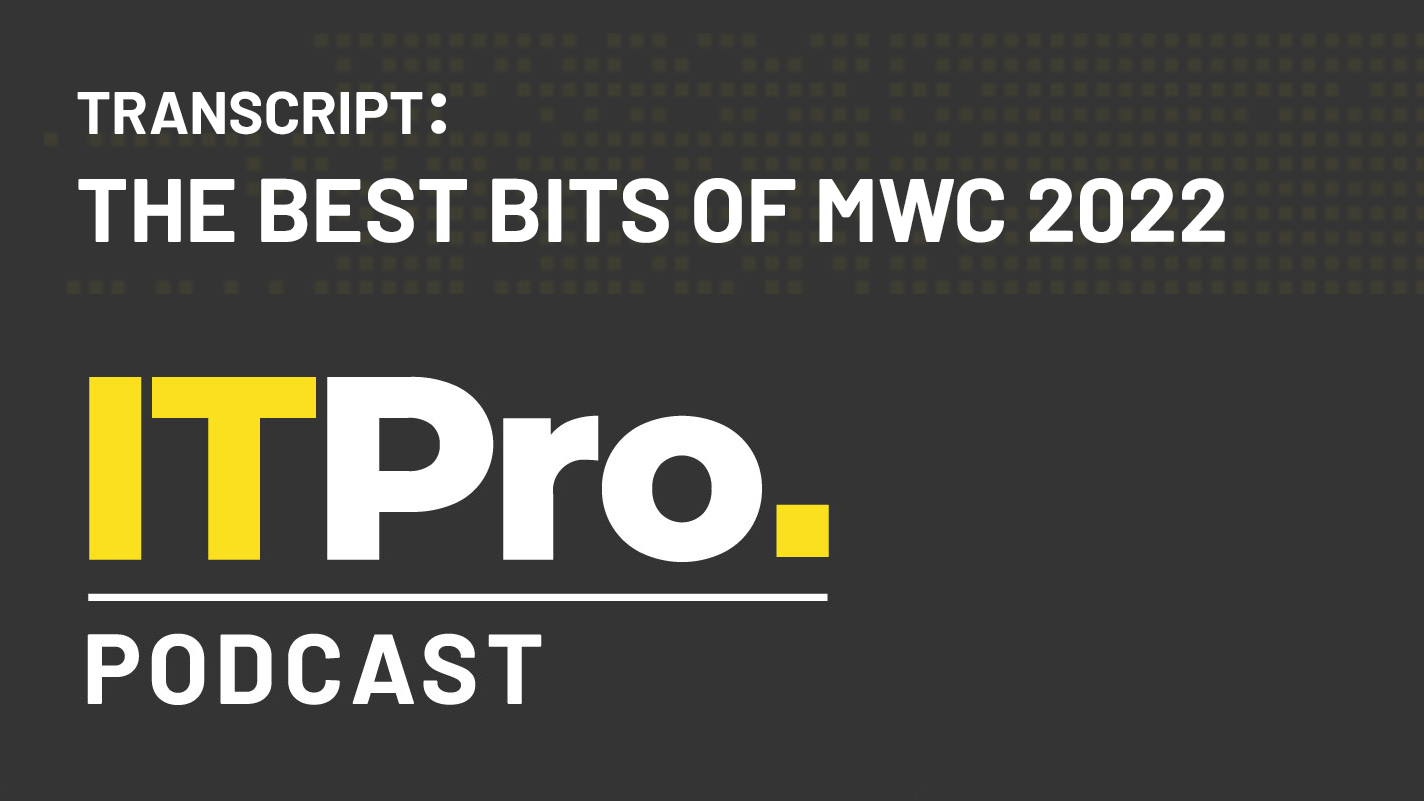
Sign up today and you will receive a free copy of our Future Focus 2025 report - the leading guidance on AI, cybersecurity and other IT challenges as per 700+ senior executives
You are now subscribed
Your newsletter sign-up was successful
This automatically-generated transcript is taken from the IT Pro Podcast episode ‘The best bits of MWC 2022'. To listen to the full episode, click here. We apologise for any errors.
Adam Shepherd
Hi, I'm Adam Shepherd, and you're listening to the IT Pro Podcast where this week we're talking about the most interesting highlights from MWC 2022. Every Spring, Barcelona plays host to Mobile World Congress, one of the biggest events in the mobile technology calendar. It brings together mobile hardware providers, networking infrastructure vendors, and a whole host of other organisations to showcase the latest developments in the industry. The show features everything from the unveiling of new laptops and smartphones, to the newest advancements in 5G, IoT and telecommunications standards, and welcomes around 100,000 visitors on average. Rather than having to pace the halls of the Fira Barcelona yourself, however, I'm joined this week by Bobby Hellard and Sabina Weston, who were on the ground bringing us all of the biggest updates from the event.
Bobby Hellard
Hello.
Sabina Weston
Hi!
Adam
So guys, what did you think of MWC 2022?
Sabina
Yeah, it was, it was amazing, really. This was my first MWC. In fact, it was my first international tech conference. I hadn't been outside of London previously, when it comes to tech events. So So I'm extremely lucky to have this as my first international tech event. And that I got to travel all the way to sunny Barcelona for it. We're about you, Bobby was was your first conference? I don't think so. Right?
Bobby
Nice. No, this is my second MWC. I did go to the last major one in 2019. And there was, I wouldn't say like a drastic difference between the two. But it's a slightly lesser scale now. But it's fun, it's good. Lots of exciting products. Lots of trouble too, with the BA problems at the start, you know, affected a lot of people getting there. But I think it was generally, it was well received, the whole show went without any other hitches.
Sign up today and you will receive a free copy of our Future Focus 2025 report - the leading guidance on AI, cybersecurity and other IT challenges as per 700+ senior executives
Adam
So Bobby, how much has it changed as a result of COVID?
Bobby
Well, size wise, it's nowhere near as big as what it was in 2019. I'm not sure on the attendance figures, but there was a lot less than what it was before the pandemic. And we just had more virtual presentations. So companies like Realme and Lenovo, they chose to give us video showcases but they didn't actually attend. So that's completely different from 2019. Lenovo had one of the biggest stands in 2019. But they had no presence this year. And that is probably due to the restrictions in China where you have longer quarantine periods. So it probably didn't make sense for them to come. But they were kind of missed.
Sabina
No, yeah, this is this is the same thing that I heard, that a lot of companies have to restrict sort of like the number of representatives, basically due to due to ongoing travel restrictions. So teams were, if not smaller, they were more European based, like he said, and I honestly was surprised to hear that. I mean, I was already pretty overwhelmed by like the scale of the event. And then when I was told that actually, this is only like, half of what it used to be, or, you know, 70 percent, maybe of what it used to be I was I was shocked. I I wouldn't know how to act, I think, at that big of a tech event.
Adam
Yeah, the last time I was there was several years ago now. And it was an overwhelming experience, I think. I mean, for those who haven't been to the Fira Barcelona, which is the venue that MWC is held in, its enormous; it's really, really big. And just getting around it with the amount of people that are usually in attendance is a job in and of itself. And yeah, kind of it's it's one of those events where you spend half your time just trying to get from one section of it to another, you know, fighting through crowds of strolling business people who are clearly in no particular hurry to get anywhere.
Bobby
Have you ever had to go all the way to hall eight?
Adam
I have, many times.
Sabina
Wait, was there a hell eight this year?
Bobby
No.
Sabina
There, you see, that's what I thought.
Bobby
Huawei had a like a presentation booked at the end, in between hall seven and hall, what was hall eight, but hall eight was closed and they didn't realise. So they walked us from their booth in hall number one, all the way through to hall number eight. And there's about 10 minutes of arguing with the guard there about let us into hall eight which looked basically closed. It looked a little bit like if we walked through that door we would just fall out the end of the building. The guy was like this is hall eight, this is where we are and they couldn't get an answer but they've got like a mini sort of side section round by seven that they've classed as hall eight. But yeah, it was just a very frustrating afternoon wasted walking all that way.
Adam
Yeah, I can imagine, because it's, how long would you say it takes to walk from one end to the other?
Bobby
It depends on the route you take, because I didn't time them. But you could go through Hall to Hall and through the outside bits, or you can go up the escalators and along the walkway, I think the bit through the hallways where you go through the exits where the the food stores are probably takes a little bit longer because it's kind of curved.
Adam
Yeah, kind of a bit of a wiggly route.
Bobby
Yeah.
Sabina
Yeah, it was, I did find it quite... I mean, I thankfully, with my briefings that I had booked, it did allow me time to walk between, you know, hall one and, for example, hall seven, but honestly, I cannot imagine if, if you had stuff going on at the same time, or like, right, one after the other without that 15 minutes, sort of, like, you know, for the commute, basically I would call it. Yeah, it was, it was it was just massive and, and like I said, I don't think I've ever been in a big physical indoor space like this before. If you don't count like Westfield, or something like that.
Bobby
How did you find the mask restrictions?
Sabina
You know what? I didn't mind it. I mean, I know that you weren't a fan. But I, it definitely helped me feel safer. It definitely helped me feel that no one's spitting in my face while talking to me.
Adam
Always good.
Sabina
Yeah. I felt I mean, because, you know, like, even on the London tube and stuff. When people don't wear masks, they don't wear masks, but also they're not speaking at me. While when you're at a place like this, which is very good for networking, and you get to meet people, you know, and discuss stuff with them. And often it's very loud, so we have to stand quite close to each other. I think it really helps not to get someone's spit in your eye. I don't know. I'm sorry, if I'm being too graphic, you guys. But it also helped me feel way more confidence. Knowing that I don't have to bother about whether I have some lettuce stuck in my teeth after lunch. It's definitely, and also, you know, obviously, the confidence that I'm not gonna, that I'm likely not going to give anyone COVID. So that definitely helped. Yeah, so I mean, I could focus on, you know, getting the sort of like the most out of it without having to worry about the lower half of my face. And and, to be honest, I yeah, I don't mind that. I mean, I'm, I'm quite happy for this to be around at any other tech conference I attend.
Adam
So speaking of which, Sabina, you were looking at the networking side of things. What are the big trends that everyone's talking about this year?
Sabina
For me, it was quite interesting, because if you've read my what to expect piece, I was definitely quite surprised that there wasn't a lot going on about about 6G. I sort of expected about to be more involved on the agenda given about 2019 was definitely mostly dominated by, I mean, from what I heard, was definitely a 5G sort of like year, but I stand corrected. You know, like, while speaking to a lot of people within the industry, especially telecoms, they told me all about how 5G is definitely, we are literally we're definitely only at the beginning of the 5G road. And there's so much, every one of them agreed with a statement that there's still so much unrealized potential to 5G and that 6G won't be even considered considered seriously until very later on in this decade, in the decade. So they were all saying that, you know, that 6G, despite there being quite a lot of research into into 6G. I wouldn't say a lot. But there is research going into 6G and I thought that this would be an emerging technology, which, which will be which would grab people's attention, but yeah, but I was wrong. And 5G, there's definitely a lot to it. And that's definitely what people were focusing on.
Adam
It's worth bearing in mind as well, that the length of time that it takes to develop these kinds of technologies and these kind of standard increases. is enormous. 5G was in development for years and years before. Yeah, yeah. And it's still not really finished kind of even rolling out fully.
Sabina
Oh, definitely. Yes. Yes. And yeah, like you're yeah, completely. Now I am like fully aware of the fact that these like mobile generations are more like 10 years each. I had previously I was hoping that, you know, maybe not hoping but like I was thinking about with the technological progress and advances that this length of time between generations is shortening because we have so much more technology available. And I guess sort of like the demand for progress is much greater. But but there is that 10 year gap between between mobile generations definitely is still very much in pace. And, and 5G is still very much, it's only the tip of the iceberg from from what everyone told me.
Adam
So are there any new technologies on the horizon that businesses should be keeping an eye on, if not 6G?
Sabina
I would focus more on on Wi-Fi 7. Nowadays, we mostly see Wi-Fi 6, in plenty of new offerings. And Wi-Fi 7 isn't considered very mainstream, in fact, there's only, it's only been properly announced last year. So I found it extremely surprising that Qualcomm is now rolling out the world's first Wi-Fi 7 chip, which basically is in its sampling stage. Now the technology is available, but we'll see it in devices in the second half of this year. The it's going to offer very low latency of less than two milliseconds and meaning that this that the peak speeds of 5.8 gigabits per second will help power use cases in the metaverse and an extended reality, which was very big this year. Although I unfortunately heard about the fun little roller coaster that was one of the stands in hall three, which basically allowed you to put on these sort of like, virtual reality glasses and you sat in a chair, which was being like, you know, moved around, like like a roller coaster basically. Apparently, I got I got info from someone that this was around at the 2019 MWC as well, but this year just slapped a Metaverse title on it, so. So I don't know Bobby, maybe correct me if I'm wrong. But this is literally the opinion that I heard from from someone. Yeah, so definitely, Wi-Fi 7 is big.
Adam
Yeah, I'm really interested in the kind of development of Wi-Fi 6e and Wi-Fi 7. Because yeah, as you as you mentioned Sabina, Wi-Fi 6 still is in the really kind of early stages. Support for it is included on most smartphones and laptops that come out these days. But the vast majority of actual networking equipment that is kind of in use and deployed, whether that's, you know, in people's homes or in business networks, for the most part, is still on, you know, Wi-Fi five and older standards. So I would be really interested to see how far the rollout of Wi-Fi 6 needs to progress before we can start really thinking about Wi-Fi 7 on a kind of mass scale.
Sabina
That's a good question. From what I see like in our latest sort of like reviews, a lot of new releases are Wi-Fi 6. And I think it's very interesting that we now we are now getting a new, the world's first essentially Wi-Fi 7 chip. And it is likely to be seen in devices from Acer, from Asus' phone, I think Asus Asus' phone division, Honor, Oppo, Xiaomi and Tencent; we're going to be seeing Wi-Fi 7 in their devices by the end of this year. So it is a good question as to why now. It would be it will be interesting to see whether it catches on and whether we'll essentially just do this leap into Wi-Fi 7 by the start of 2023.
Adam
So as well as networking, MWC is also the place to get first looks at some of the most interesting upcoming devices. So let's move on to the hardware, then. Bobby, can you talk us through some of your highlights from the show?
Bobby
So there was a lot on display, both virtually and physically there. But there is a slight problem with those that were virtual. So you get you know, pretty pictures, glorious little video and a load of specs. But without being able to get hands on it, we can't say how good it was. And you really can't get that excited about it. So we got our hands on Samsung products, the Samsung Galaxy Book Pro 360 And I thought that was fantastic. It's great. I loved it. But then I also loved the Lenovo Arm ThinkPad but I didn't get to see it. I didn't get to use it. And then they've given us this great statistic that it lasts for 29 hours of battery life; that would have been perfect to play with, but because they weren't there, and it's understandable that they weren't there, it's a big Chinese company, tough restrictions in China, you can understand they're not there. But they, it does feel like those that were not there didn't get much help from the fact that they weren't there. And yeah, interestingly enough, the best device on show was not a handset or a laptop, it was actually a charger. So this also fits into the narrative of those that weren't there and those that were there because in the morning on Monday, Realme introduced an Ultra Dart Charger. It's 150 Watt, boom, charges your phone, five minutes, 50% full. But by the afternoon, that had been doubled, I think, almost doubled, by Oppo with their prototype for a Super VOOC charger, 240 Watts, which charges the phone in nine minutes from zero to full.
Adam
Yeah, that's insane.
Bobby
It is. But it's a prototype. So it's not for the Oppo Find X5, it's for an unnamed device that hopefully will be released sometime next year. And they had sort of prototypes on display. Now you can kind of tell how good the products were by how popular they were. And that was the most popular device there. Just like a little prototype, stuck the charger in and it would go really quickly. So quick that they had to have three separate prototypes, and then they had to drain the batteries before other people could use them.
Adam
That's amazing. Yeah. I mean, I'd be worried about my phone catching fire if something was charging it that quickly. I mean, it does. It does sound amazing. But I have questions about the impact on device longevity, if you're hammering the recharge that fast.
Bobby
Yeah, there was, this was brought up by a number of journalists that we were there with. See, Oppo say they've got a solution that they've worked on, that takes into account the charger, the cable and the phone. So there's a control chip that manages voltage and current and temperature, but also this new phone, whatever it is, has got temperature sensors. So that kind of suggests that this is not going to be available for any old phone.
Adam
No. So I mean, I would I would go so far as to say that it's probably the kind of thing where it actively won't work if you're trying to use it on on a kind of on a device that it's not specced for. Either that or it'll limit, it will throttle the the voltage that it puts out to kind of, quote unquote safe level so that you know, you don't plug your Samsung phone or your Pixel into it and just have it detonate.
Bobby
Yeah, that'd be mad. But um...
Adam
I mean, I remember the Note 7. So yeah, the last thing anyone wants to do is recreate that.
Bobby
That was terrible.
Adam
That was not good.
Bobby
But charging speed is quite notable at the event, because a lot of the phones that we did see still had quite high voltage levels. So the OnePlus and Oppo phones, presumably they've got the same people working on them. But they were both had 80 Watt fast chargers, which is up from the 65 Watt fast charger on the OnePlus 9 Pro. I remember that flying through charging speeds.
Adam
Well charging speeds is one of those one of those areas where we can still kind of make progress. I feel like a lot of other areas of smartphone development have kind of plateaued to a large extent, there's not really much benefit to increasing the screen resolution beyond what it is at the moment. Refresh rates are, you know, creeping up, getting to things like you know, 60 hertz, and 120 Hertz in higher end devices. But again, that's kind of not necessarily particularly essential. And the processing power of modern smartphones is already way beyond what the average user needs for it. So battery technology is basically the last frontier where making improvements is going to be a genuine benefit.
Bobby
And all those other ones you mentioned affect the battery. So particularly the refresh rate, because I mean in recent times, I think, overall smartphone battery life has dropped by maybe a couple of hours here and there. And it's partly because they have to, you know, accommodate for these changing refresh rates all the time. So yeah, there is still room for it to fix it.
Adam
So of the technology that you saw at the show, which do you think business folks are going to be most interested in?
Bobby
Well, I myself was quite interested in the Huawei MateStation X, which is a new desktop. Part of the reason I was interested was the software that's on it, which is also available on all of the other Huawei laptops and tablets. So this is called Super Device and it lets you link up all your tablets to get, well not all of your tablets, but it lets you link say your Matebook X Pro to your Matestation for that extra screenspace. And it's all wirelessly. And what it is, is a little user interface that kind of looks like pebbles in water. So one, one main one in the middle there is called your MateStation X, and you find another pebble if it's available in the area. And you just sort of collide them together, and they link up . So the people at Huawei showed me this with the phone. So on your massive MateStation X screen, you get like your phone's interface. Or if you get your tablet, you've got like a an S Pen, you can start drawing on your tablet and it'll appear on the MateStation screen. Or if you're using your MateStation, sorry, Matebook X Pro, you can start typing away and it'll appear as a monitor on the MateStation X, it's all perfectly seamless and easy. It was just exciting to see that as a home office setup. I went there and I went I want that for my home office basically.
Adam
And that's, that's always the sign of a successful product. It's that that whole device ecosystem idea is a very interesting one to me, because it's something that a lot of companies are are trying to get into. Apple has been doing it very successfully for many years with, you know, iPhone, iPad, iMac, all across the range, Huawei is doing it, Samsung is trying to get into it, admittedly at a kind of earlier stage. But it's something that I don't know is super necessary these days. I mean, the wireless screen sharing, and wireless display extension is good and interesting and the kind of thing that I can imagine being very convenient, I'm not sure I'd buy into an entire device ecosystem just on the strength of that, though.
Bobby
Perhaps not. You're right with a Samsung one. I saw the Samsung one first. And it kind of didn't really excite me that much. But you can basically take the new Galaxy Book range, and you can pair them with a tablet, and you get limited screen space. But you can also control your tablet with your trackpad on your Galaxy Book, which is fairly nice. But it was just the way that Huawei showed theirs off that was more exciting and more like wow, this has blown my mind, kind of thing.
Adam
Is it just the user interface that's attracting you to it?
Bobby
I think it is a little bit. The The other problem was, is the MateStation X itself was good. But I imagine there's better all in one desktops available. It wasn't a brilliant, brilliant desktop, it was a good one.
Adam
So the MateStation X is almost identical design wise to the MateView monitor, which I really, really like. It's I really like the hinge design, I really like the 3x2 aspect ratio. I really like the quality of the screen itself. I thought it was just really nice and, and polished. To be fair, as is most of Huawei's computing equipment, but it's going to come down to price for me, because premium all in ones really are going up against the iMac. And that is tough, that's a tough act to follow, you've got the iMac and you've got the Surface Studio. And you need to be either significantly more affordable. Or you need to be at the absolute top of your game. If you want to seriously rival either of those two machines.
Bobby
I suppose the other problem they might have is that the software allows you to just link your tablet or your MateBook X to just a monitor. So you don't really, if you can already do that, you're not going to spend more on MateStation X with a keyboard and a wireless mouse that they didn't really go into much detail about.
Adam
I mean, you know, at the end of the day, it's a keyboard and a mouse. Do you know what I mean? There's there's very rarely anything particularly exciting you can you can say about either of those two technologies. You know, I mean, don't get me wrong. I love a good a good keyboard as much as the next tech nerd. But unless you start getting into, you know, talking about individual key switches and all of that kind of stuff, which let's face it, no one really cares about. It's just, yeah, it's a keyboard. Does it look alright? Is it wireless? Grand.
Bobby
But this is the thing, if you've if you've already got a laptop from Huawei, and then you want to get bigger screen space show the cheaper monitor is the better option.
Adam
Oh absolutely. This the MateStation will be for hot desking setups, I would imagine is the, certainly from a business perspective, that's going to be where most people are going to be interested in it, I would expect, is companies looking to outfit you know, an entire office with machines that they can just plop workers down in front of and they can just pick it up and go. And then they can also use their company issue phones or tablets or whatever to kind of interact with nice, agile, flexible way.
Bobby
Yeah, although Huawei phones would present somewhat of a problem for businesses.
Adam
That's very true.
Sabina
From what I, from what I know, Bobby, you might be you might know more about this. But Huawei rolled out a very similar tool a couple of years ago, which basically allowed users to pair their devices and just, you know, effortlessly move files from one screen to another screen of a different device. And Adam, we tested this out a few weeks ago, remember with tablets and my, between between a Huawei tablet and a Huawei laptop, and I found this amazing. I've never seen, I never used anything like this before.
Bobby
This is the one hop feature.
Sabina
Yeah.
Adam
This is the Huawei share thing, I believe?
Sabina
Yeah, the Huawei share. It's, I think it's great. And I love that they're now expanding it to, I think, include as many as five devices at a time or even more. But I think I think it's great, because it's because it basically allows you to do the same work without changing devices, I often find myself making a design, for example, our Instagram page, I make the design on our laptop, and when I have to switch to my phone in order to download it onto my phone and post it from our Instagram account on, you know, my smartphone device, which essentially I would love to for this to be comprised on one device. This essentially, this tool from Huawei essentially allows you to do the same editing, to do editing on one device and have it saved on the other one that you will be using, if you know what I mean. So basically, if you have a file on your phone, you can open it from your laptop, edit it there, and then have it saved on your phone again. I think that's amazing.
Bobby
I really like it too. I've always felt this with Huawei, if they've got anything over everyone else, it's their controls. And their sharing files. It's all really innovative. So like on the old Matebook X Pro, you can screenshot with three fingers and stuff like that. And yeah, that's now on the new one as well, the new model, where you can use your knuckle to double tap your keypad, screenshot, you can just lift your finger up the left hand side of the trackpad, it turns up the volume or the other side turns up the brightness, run your finger across the top, it speeds up video. it's all really cool. Yeah, if only we got one of those models.
Sabina
I wish I wish these things were available in more in more offerings. Like I just checked, and I don't think there's essentially, you know, that big of a limit on I think the devices that you can pair because it includes mobile phones, tablets, monitors, smart TVs, anything whether it's compatible, basically with the Huawei interface, and it doesn't matter whether it's Windows operating system or the Huawei Huawei Huawei phone operating system. It's all sort of it's all linked seamlessly throughout these and the transfer, you know, transferring files is very easy. As I can personally attest. At the same time, Huawei rolled out sets that you can buy, so you can buy these devices in bundles and have it ready for you, which is very convenient, I guess for big organisations equipping the workforce with adequate, you know, adequate hardware.
Adam
So conferences like this are always a good benchmark for what's happening in the wider industry. With that in mind, what are your main takeaways from this year's Mobile World Congress - Sabina?
Sabina
My, my main takeaway is that the tech industry hasn't been obliterated by COVID-19. And that it's still willing to put on a show and put on massive, massive events, with plenty of people, despite a raging pandemic going on, still, after two years, and I think that not even not even COVID-19 will stop the tech industry. I mean, we've seen that. I mean, obviously that's nothing new. But with event planning, you would think that, I remember two years ago when everybody said about oh, you know, like in physical events are over now. We'll only be doing them from home. Wow, isn't that great? You don't have to leave your home to do things. And I kept thinking, No, that sucks. Actually. I want and I'm very happy that we get to we get to see the world and we get to meet people from different companies based in different headquarters all over the world. And we get to explore those parts and see seeing you see a new face to it every single year. And I'm hoping that this continues in the long run.
Bobby
I have kind of similar sentiments. I was really happy to be out again, very happy to be out with Sabina as well, really enjoyed your company. It's great to be with other journalists again, for a first tech event as well, you did really well. I mean, did you read the Ukraine story that she posted?
Adam
Yeah, that was a really, really interesting bit of reporting that we will link to in the show notes.
Bobby
So yeah, it was nice to get out and meet people again, and talk face to face. And you know, we we do tend to go out on late nights as well on these press trips, and you get more of a informal chat with your, your hosts. And it's always nice to get new insights and different angles on stories and new interesting things that they say. And I just loved every minute of being there. Even even long walks across eight different halls.
Sabina
Seven!
Bobby
Seven different halls. Yeah. Hall eight doesn't exist.
Sabina
No.
Adam
it's mythical.
Sabina
Yeah, I think at the end of the day, I think the smaller capacity this year allowed people to be more, to have this more individual approach and for people to connect a bit more, because maybe the number of meetings was slightly reduced, I guess, or maybe even provided people with a greater chance to schedule in something that they originally wouldn't do. If if not for, you know, a slightly smaller scale. So it, I think it provided more opportunity for people to be more direct with each other. And I think this is really what we need after the last two years of being on Zoom calls.
Adam
Yeah, absolutely. I can certainly say from my own experience, having less people at an event like that would have made it much easier to to actually get round, see all the things that you want to see, cause there is a fabulous amount there to, to experience and to discover, but being able to actually get round everything and see everything and talk to everyone that you want to to meet and talk to, without having to fight through, you know, 100,000 plus people would have significantly improved the experience from my perspective.
Bobby
So that is probably going to be what international events are going to look like now, that virtual mix. So that kind of means that 2019's MWC is probably going to be its peak, attendance wise. I think that's over 100,000 people that came to that one. And I certainly for Europe, I don't think we're going to get anything on the scale of that ever again. But it's not necessarily a bad thing, I don't think.
Adam
Yeah, I think as Sabina was saying, it's a it's a good opportunity to give people more space to actually make relationships and to connect with, you know, their their peers and their partners and their and their colleagues. So yeah, I think it's, it's nice to have the option of doing that in person, but maybe in slightly less persons than previously. Well, sadly, we'll have to put MWC behind this for another year as we're almost out of time for this week. But thanks to Bobby and Sabina for joining us.
Bobby
Thank you.
Sabina
Thank you for having us.
Adam
You can find links to all of the topics we've spoken about today in the show notes, and even more on our website, itpro.co.uk You can also follow us on social media as well as subscribe to our daily newsletter. And don't forget to subscribe to the IT Pro Podcast wherever you find podcasts. If you're enjoying the show, leave us a rating and a review. We'll be back next week with more analysis from the world of IT, but until then, goodbye.
Bobby
Goodbye.
Sabina
Bye.
ITPro is a global business technology website providing the latest news, analysis, and business insight for IT decision-makers. Whether it's cyber security, cloud computing, IT infrastructure, or business strategy, we aim to equip leaders with the data they need to make informed IT investments.
For regular updates delivered to your inbox and social feeds, be sure to sign up to our daily newsletter and follow on us LinkedIn and Twitter.
-
 Salesforce targets telco gains with new agentic AI tools
Salesforce targets telco gains with new agentic AI toolsNews Telecoms operators can draw on an array of pre-built agents to automate and streamline tasks
-
 Four national compute resources launched for cutting-edge science and research
Four national compute resources launched for cutting-edge science and researchNews The new national compute centers will receive a total of £76 million in funding
-
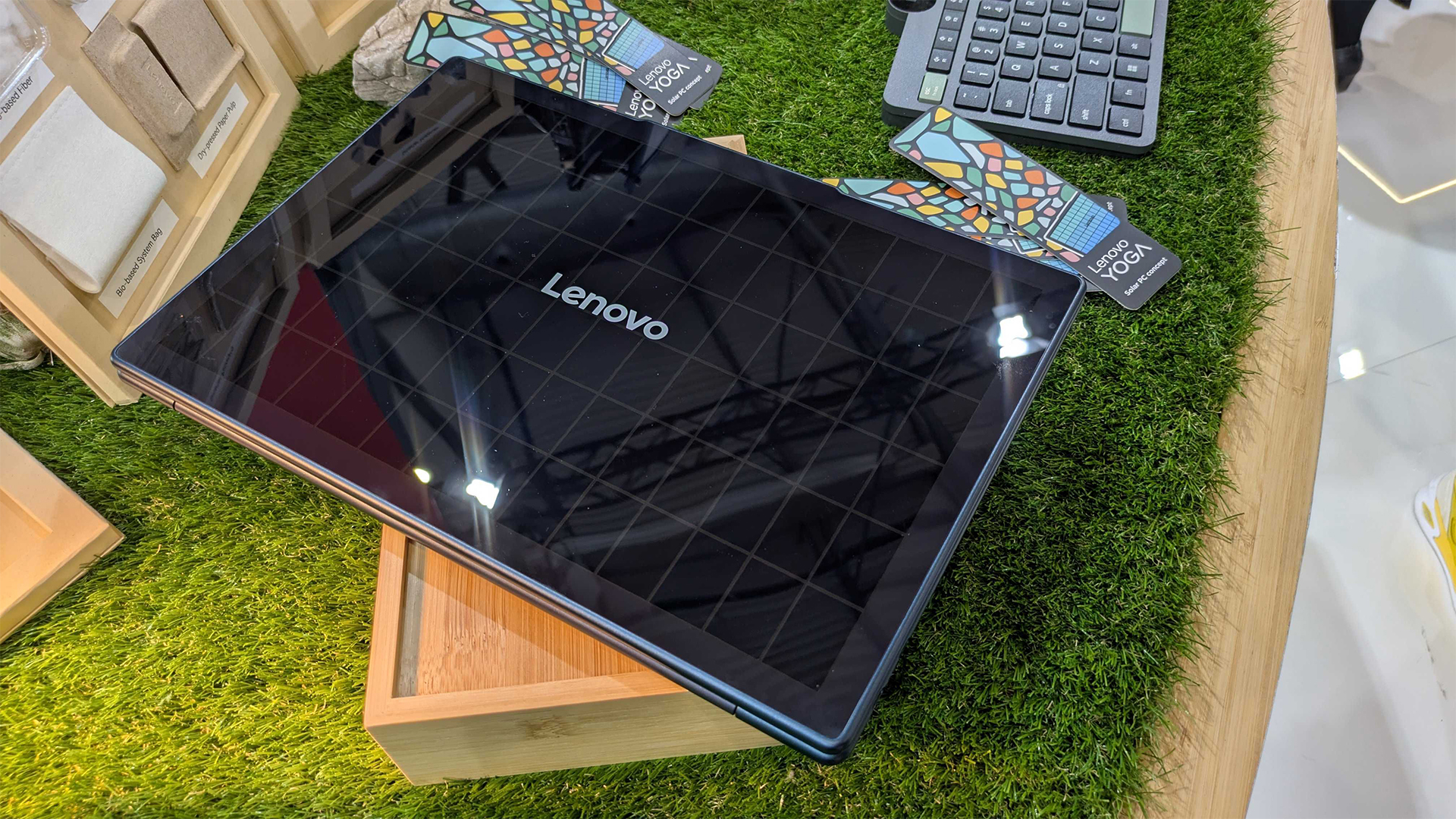 Lenovo’s solar-powered laptop could be a game changer for battery longevity – but we'll be waiting a while for a fully-fledged product
Lenovo’s solar-powered laptop could be a game changer for battery longevity – but we'll be waiting a while for a fully-fledged productNews Lenovo unveiled an experimental solar-powered laptop at MWC 2025 amid updates to the Yoga and Ideapad lineups
-
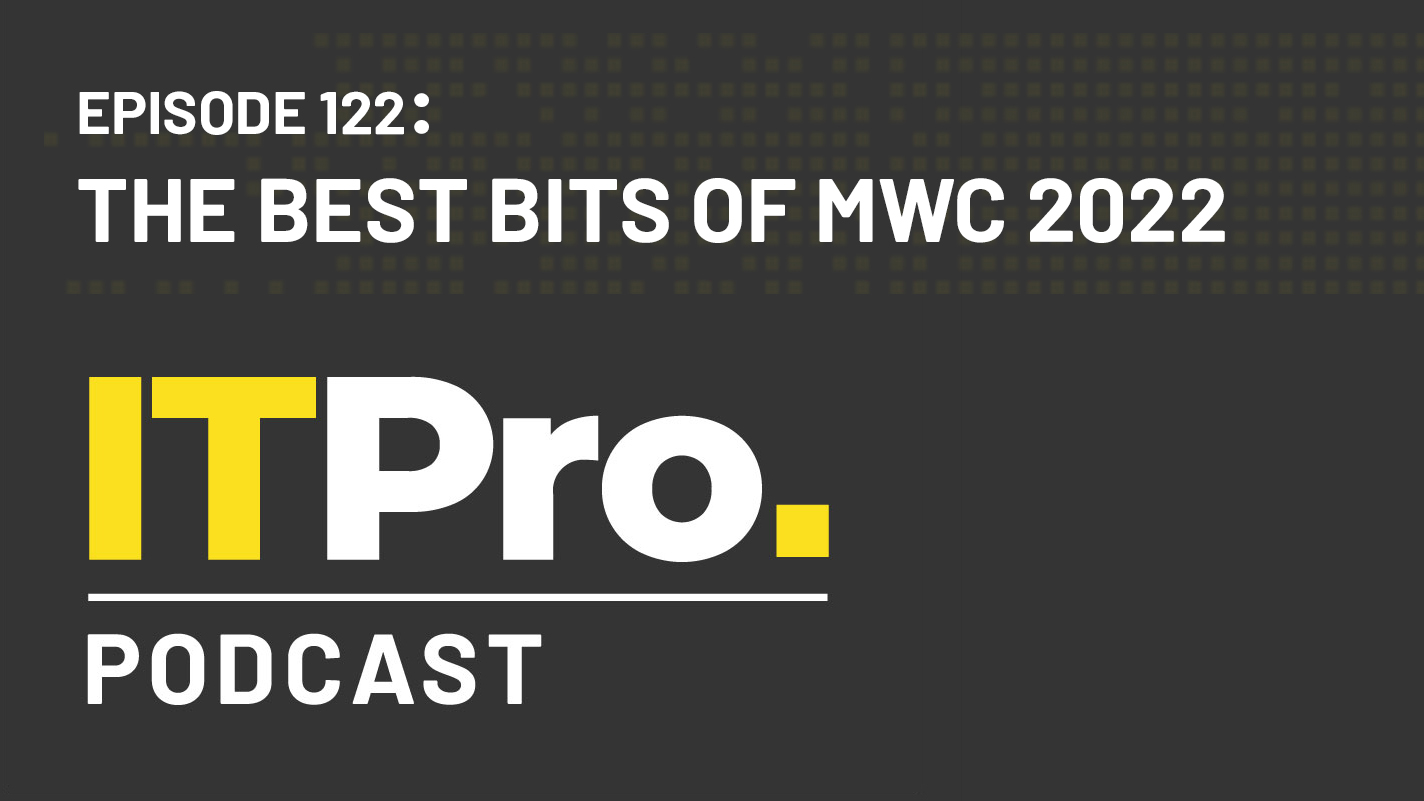 The IT Pro Podcast: The best bits of MWC 2022
The IT Pro Podcast: The best bits of MWC 2022IT Pro Podcast We recap some of the highlights of this year’s Mobile World Congress
-
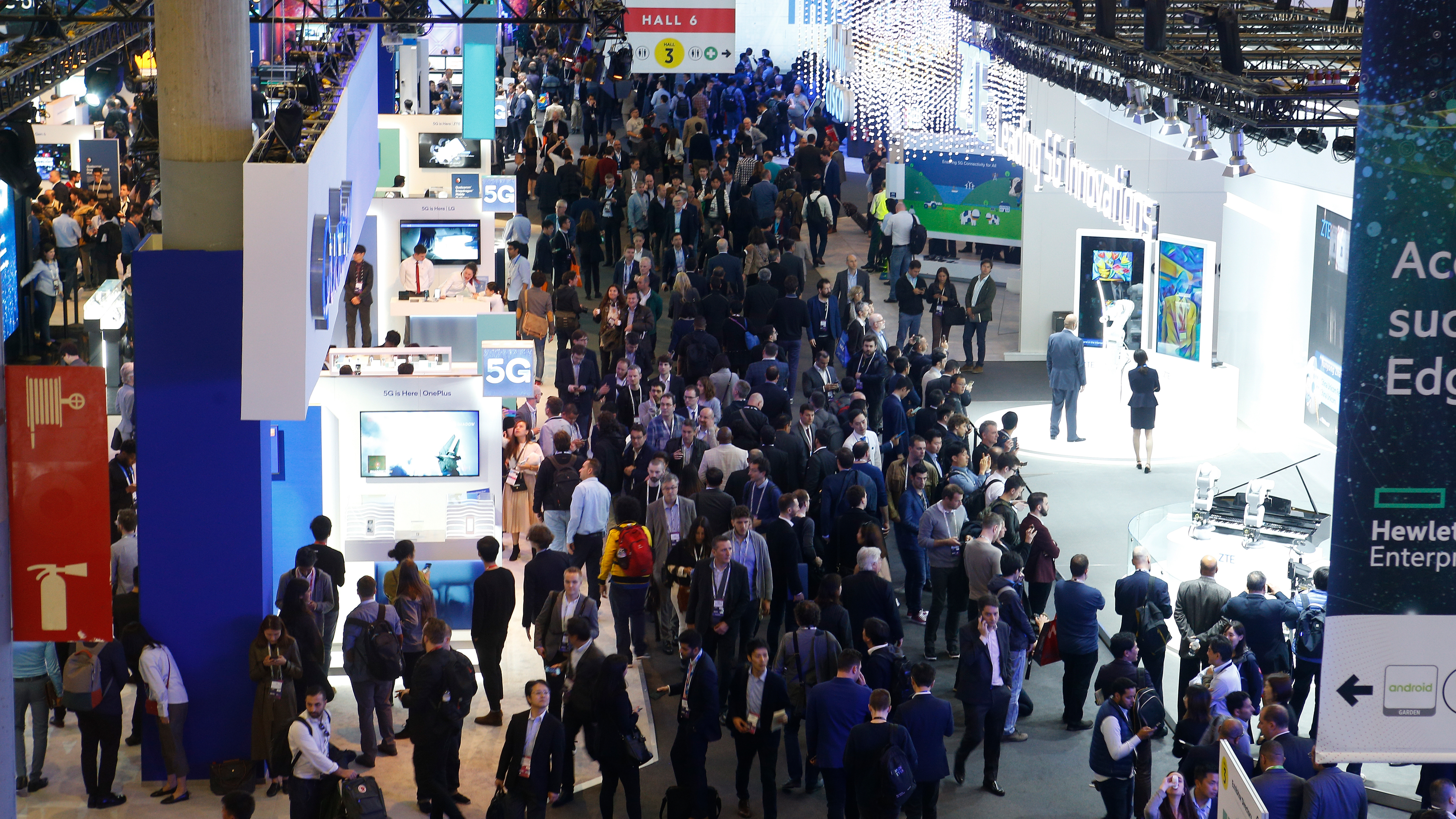 LG pulls out of MWC amid coronavirus fears
LG pulls out of MWC amid coronavirus fearsNews The move is intended to protect employees from having to travel internationally
-
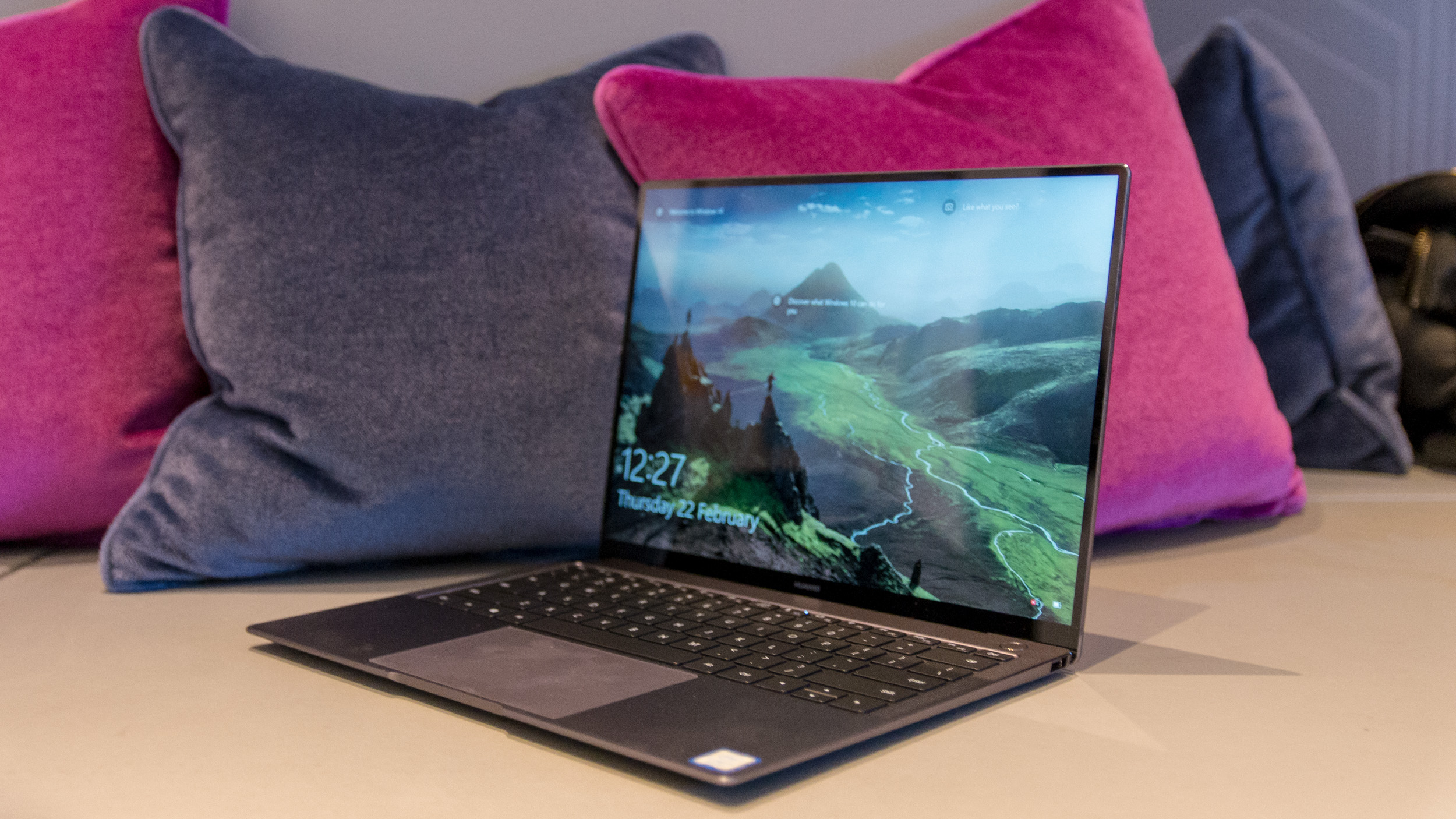 Huawei MateBook X Pro hands-on: Interesting, but overpriced
Huawei MateBook X Pro hands-on: Interesting, but overpricedFirst look Meet China's answer to the MacBook Pro
-
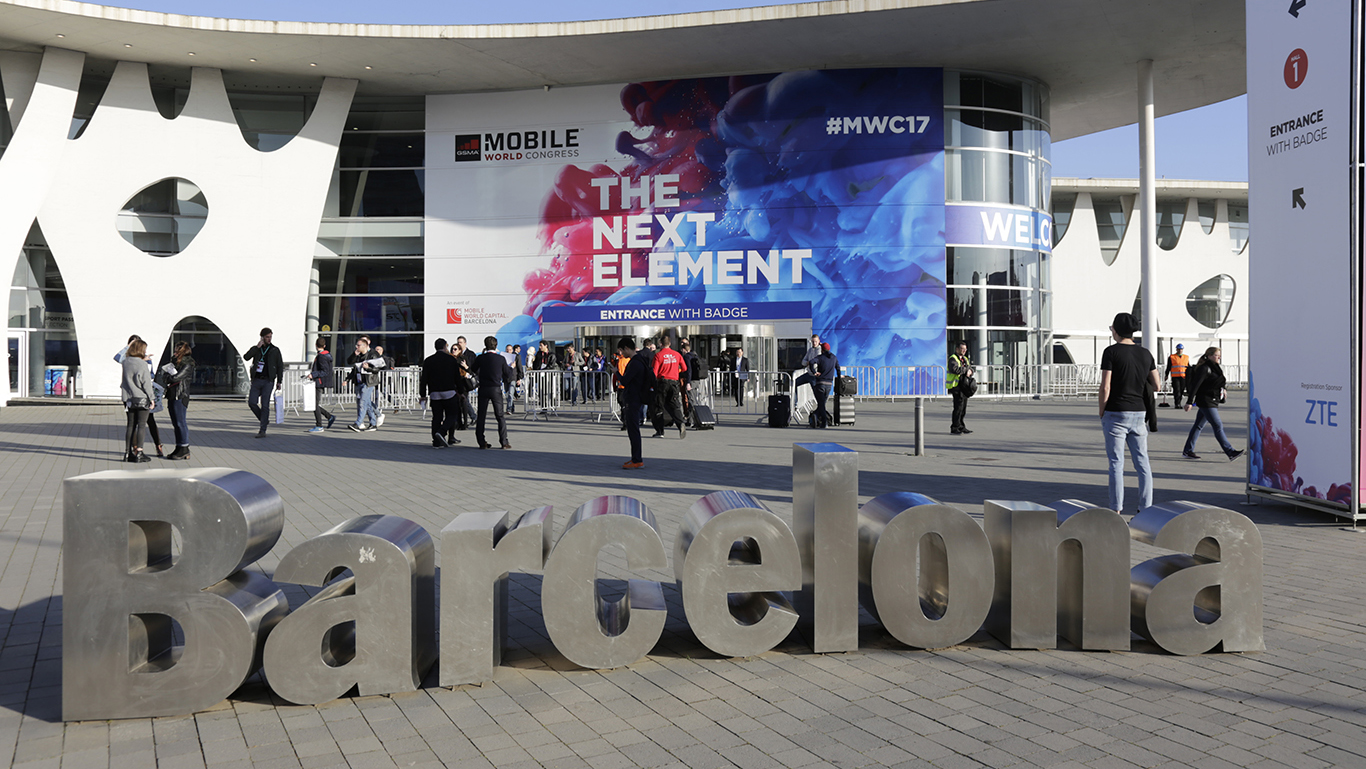 What to expect from MWC 2018
What to expect from MWC 2018Opinion The year’s biggest mobile conference starts on Sunday - but is there anything to get excited about?
-
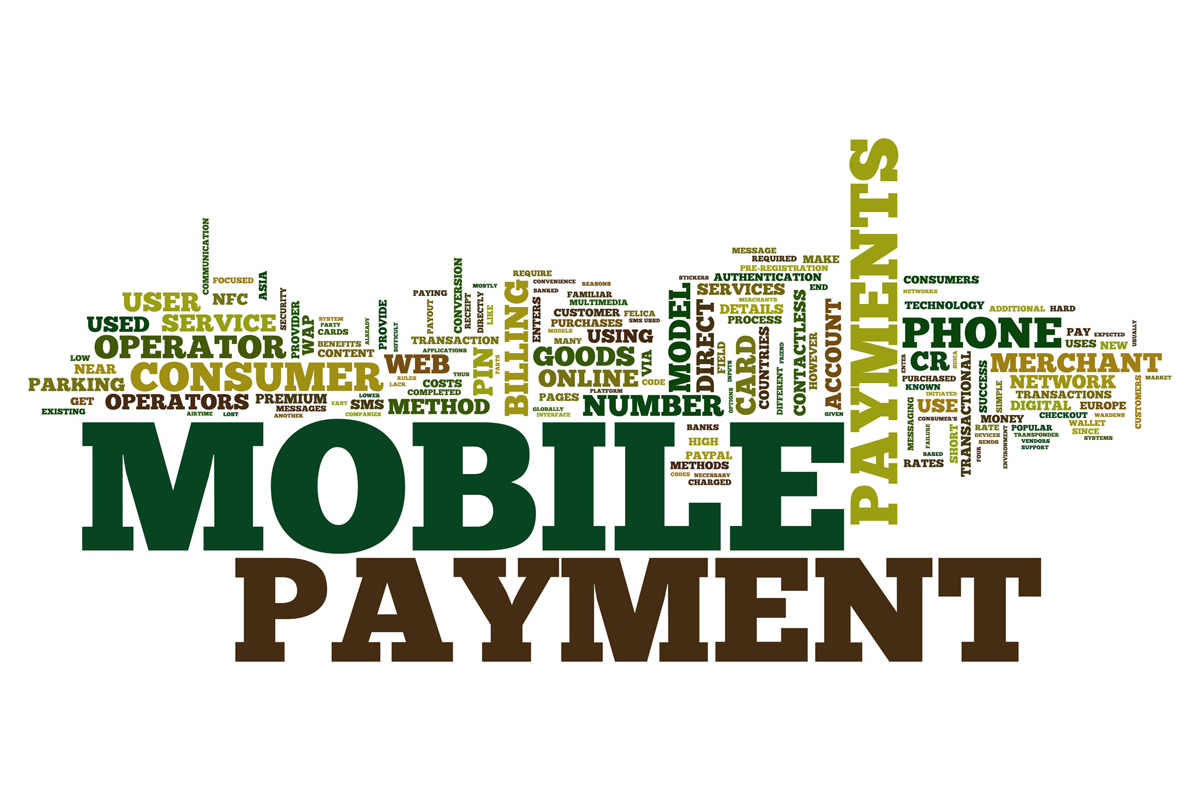 MWC 2012: B2B market fast mobile payments adopter
MWC 2012: B2B market fast mobile payments adopterNews Whilst consumers are taking their time, businesses are embracing the opportunities brought by mobile payments.
-
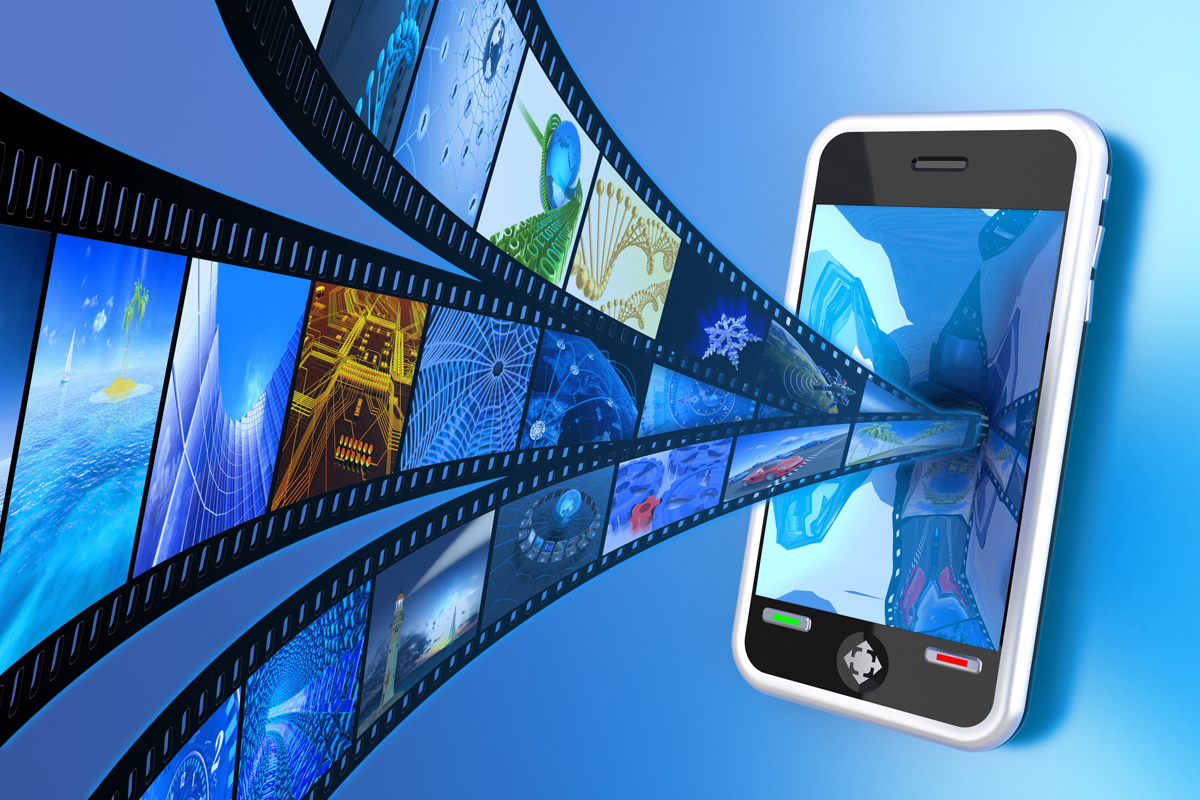 MWC 2012: Call to arms for mobile video
MWC 2012: Call to arms for mobile videoNews The CEO of AT&T challenges the industry big wigs to make mobile video calls as easy as voice.
-
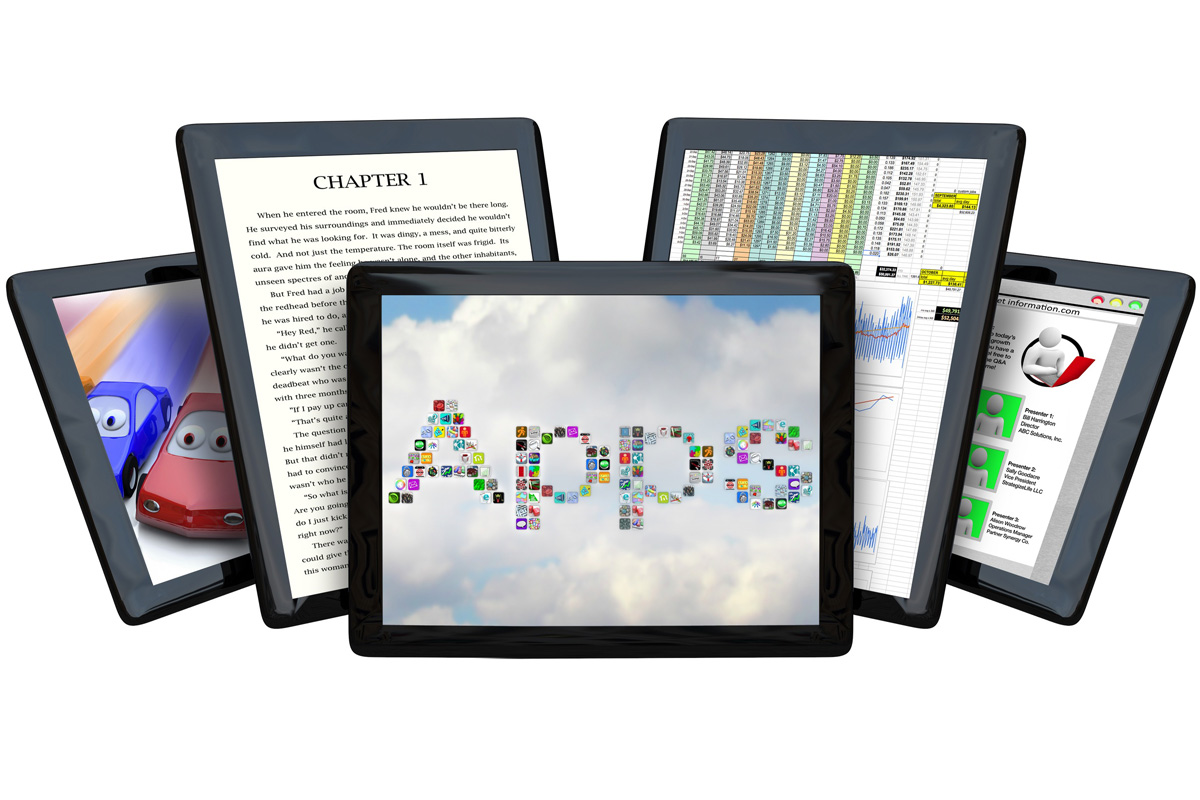 MWC 2012: Tablet surcharge for 3G 'widens digital divide'
MWC 2012: Tablet surcharge for 3G 'widens digital divide'News The CEO of Best Buy calls on the industry to bring down the extra cash customers have to fork out for mobile internet on their tablets.

